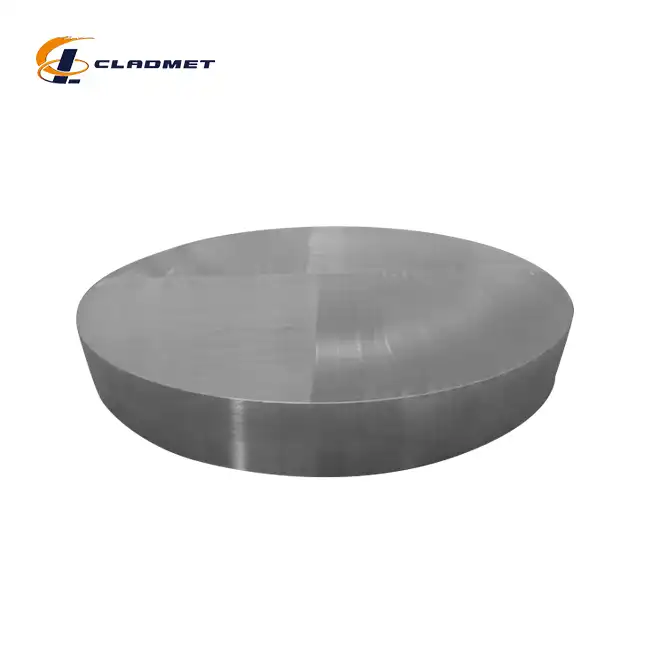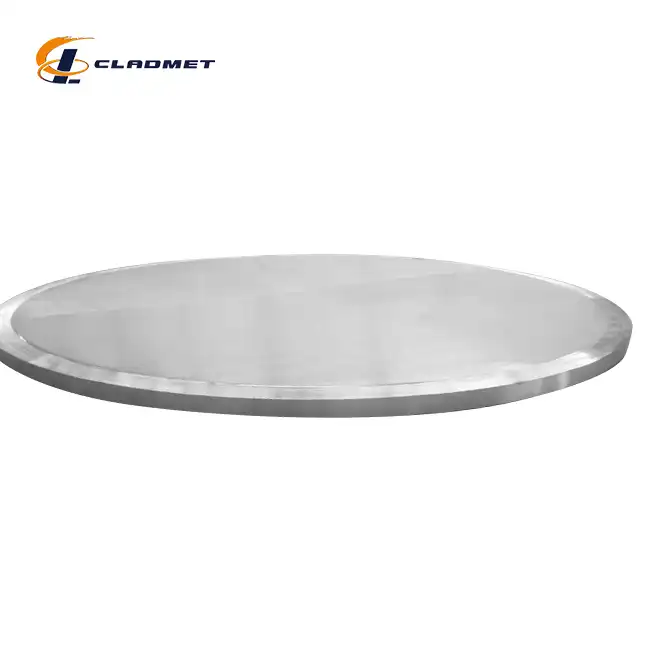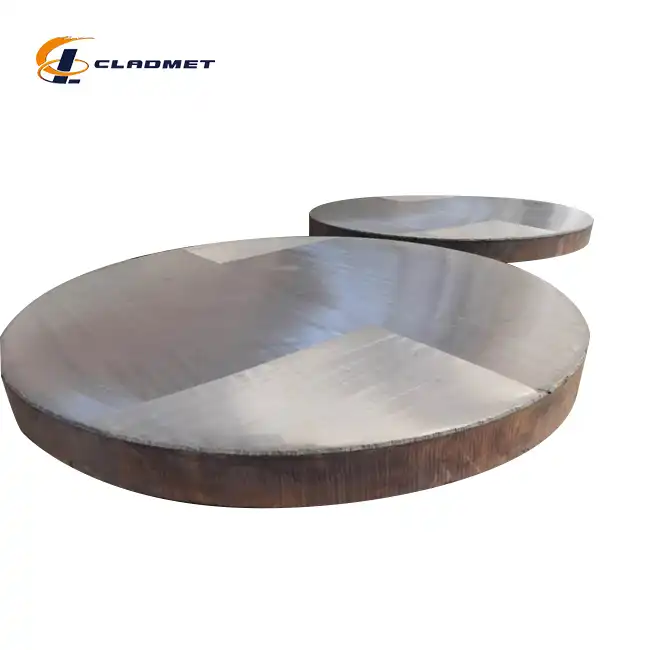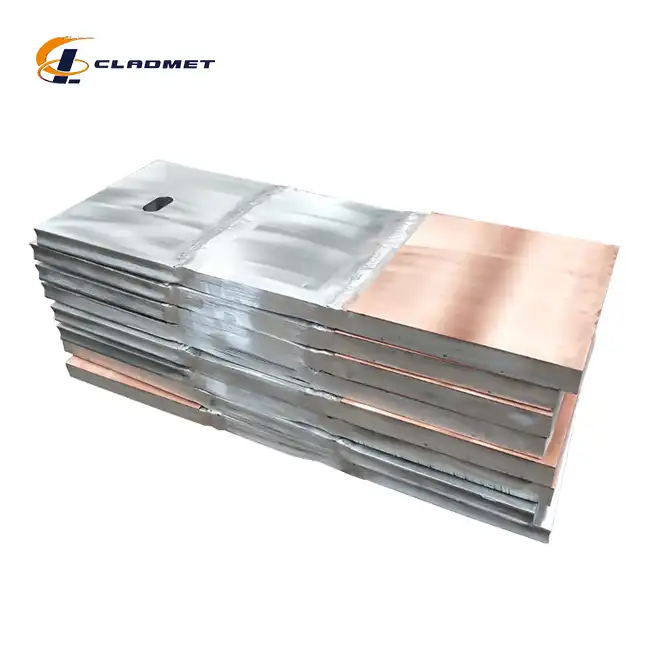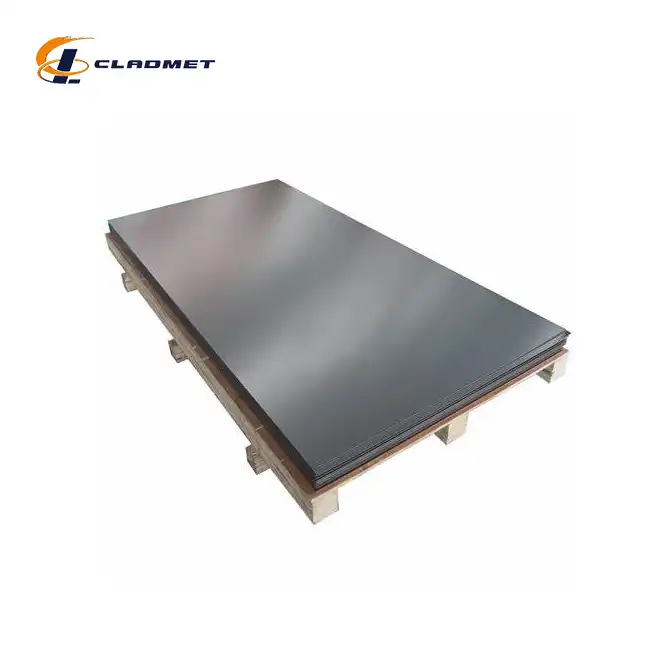Is Ti-6Al-4V biocompatible?
 2025-03-15 09:52:44
View:389
2025-03-15 09:52:44
View:389The biocompatibility of titanium alloys has been a subject of significant interest in the medical and biomedical engineering fields for decades. Among these alloys, Ti-6Al-4V stands out as one of the most widely utilized materials in medical implants and devices. This alpha-beta titanium alloy, composed of 6% aluminum and 4% vanadium, offers an exceptional combination of mechanical properties, corrosion resistance, and biocompatibility that makes it ideal for numerous medical applications. The 6al 4v titanium sheet is particularly valuable in the medical industry due to its excellent tissue compatibility, resistance to bodily fluids, and ability to integrate with human bone. This integration process, known as osseointegration, allows Ti-6Al-4V implants to form strong bonds with surrounding bone tissue, creating stable and long-lasting connections that contribute to successful medical outcomes. This comprehensive exploration will delve into the biocompatibility aspects of Ti-6Al-4V, examining its properties, applications, and performance in biological environments.
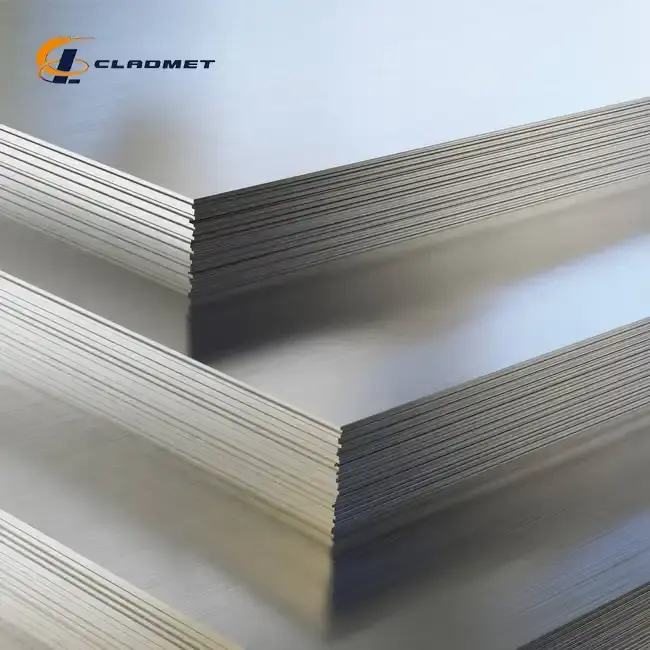
Biocompatibility Properties of Ti-6Al-4V
Surface Interaction with Biological Systems
The biocompatibility of 6al 4v titanium sheet is largely attributed to its surface properties and interaction with biological systems. When exposed to oxygen, titanium naturally forms a stable oxide layer (TiO2) on its surface, which provides excellent resistance to corrosion and creates a bioinert interface with surrounding tissues. This passive oxide layer prevents ion release and minimizes the risk of adverse reactions in the body. Research has shown that the thickness and composition of this oxide layer can be modified through various surface treatments to enhance biocompatibility further. The surface roughness of 6al 4v titanium sheet also plays a crucial role in cell adhesion and proliferation, with micro-textured surfaces promoting better osseointegration compared to smooth surfaces. The material's hydrophilicity affects protein adsorption and subsequent cell attachment, which are essential processes for tissue integration. Baoji JL Clad Metals Materials Co., Ltd. produces 6al 4v titanium sheet with precise surface characteristics, offering thicknesses ranging from 0.5 mm to 100 mm and widths from 100 mm to 2000 mm, allowing for customization based on specific medical requirements. These controlled surface properties ensure consistent biological performance across various applications, from dental implants to orthopedic prostheses.
Mechanical Compatibility with Human Tissues
The mechanical properties of 6al 4v titanium sheet make it exceptionally compatible with human tissues, particularly bone. Unlike many other metallic biomaterials, Ti-6Al-4V exhibits an elastic modulus (approximately 110 GPa) that is closer to that of human bone (10-30 GPa), reducing the risk of stress shielding – a phenomenon where bone resorption occurs due to the redistribution of mechanical stresses. This mechanical compatibility helps maintain bone density and strength around implants, contributing to their long-term stability. The high strength-to-weight ratio of 6al 4v titanium sheet allows for the design of lightweight yet durable medical devices that minimize patient discomfort while providing sufficient mechanical support. Baoji JL Clad Metals Materials Co., Ltd. manufactures 6al 4v titanium sheet through advanced hot and cold rolling processes that ensure optimal mechanical properties for biomedical applications. With tensile strengths exceeding 900 MPa and excellent fatigue resistance, these sheets can withstand the cyclic loading conditions experienced in the human body. The material's ductility also facilitates the fabrication of complex geometries required for patient-specific implants, with customizable lengths to accommodate various anatomical requirements.
Chemical Stability in Physiological Environments
The 6al 4v titanium sheet demonstrates remarkable chemical stability in physiological environments, which is fundamental to its biocompatibility profile. The alloy's resistance to corrosion in bodily fluids prevents the release of potentially harmful metal ions that could trigger inflammatory or allergic responses. Studies have consistently shown minimal ion release from Ti-6Al-4V implants compared to other metallic biomaterials such as stainless steel or cobalt-chromium alloys. This chemical inertness contributes to the material's long-term safety and biocompatibility. The 6al 4v titanium sheet produced by Baoji JL Clad Metals Materials Co., Ltd. complies with stringent international standards including ASTM B265 and AMS 4911, ensuring consistent chemical composition and properties. Through rigorous quality control and testing procedures, the company verifies the chemical stability of each batch before shipment, with products undergoing comprehensive testing that includes chemical composition analysis, corrosion resistance evaluation, and microstructural examination. The 4-6 week delivery cycle allows for thorough quality assurance procedures, guaranteeing that the 6al 4v titanium sheet maintains its chemical stability and biocompatibility when used in medical applications. This commitment to quality is reflected in the company's ISO 9001:2000 certification and successful passage of PED and ABS international qualifications in 2024.
Medical Applications Leveraging Ti-6Al-4V Biocompatibility
Orthopedic Implant Success Stories
The exceptional biocompatibility of 6al 4v titanium sheet has revolutionized orthopedic surgery, enabling the development of implants that demonstrate remarkable longevity and functional outcomes. Hip and knee replacements utilizing Ti-6Al-4V components have shown survival rates exceeding 95% at 10-year follow-ups, significantly improving patients' quality of life. The material's osseointegrative properties allow for stable fixation without the need for bone cement in many applications, reducing surgical complexity and potential complications. Spinal fusion devices made from 6al 4v titanium sheet have demonstrated fusion rates above 90% in lumbar procedures, outperforming many alternative materials. The biocompatibility of these implants minimizes the risk of chronic inflammation and implant rejection, contributing to better clinical outcomes. Baoji JL Clad Metals Materials Co., Ltd. supplies high-quality 6al 4v titanium sheet for orthopedic implant manufacturers, with thicknesses and dimensions optimized for specific applications. The company's advanced production processes ensure consistent mechanical properties across batches, critical for implant performance reliability. Orthopedic devices manufactured from these materials benefit from the strict adherence to international standards, including ASTM specifications and ISO certifications, with each product undergoing rigorous testing to verify its suitability for medical use. The customizable dimensions (width: 100 mm - 2000 mm) and thicknesses (0.5 mm - 100 mm) allow implant designers to optimize components for specific anatomical requirements, enhancing the functional outcomes of orthopedic procedures.
Dental Implantology Advancements
The field of dental implantology has been transformed by the biocompatibility of 6al 4v titanium sheet, enabling the development of dental implants with exceptional success rates and patient satisfaction. The material's ability to osseointegrate with jawbone creates a stable foundation for prosthetic teeth, with studies reporting success rates over 97% for Ti-6Al-4V dental implants after five years. The corrosion resistance of the alloy in the oral environment, which contains saliva and various microorganisms, prevents degradation and maintains the structural integrity of the implants over extended periods. This chemical stability contributes to reduced inflammatory responses and better soft tissue integration around the implant neck. Dental professionals particularly value the predictable performance of 6al 4v titanium sheet in diverse patient populations, including those with compromised bone quality. Baoji JL Clad Metals Materials Co., Ltd. produces 6al 4v titanium sheet with precise tolerances and surface finishes suitable for dental applications, manufactured through controlled hot and cold rolling processes. These sheets can be transformed into various dental implant components, from fixture bodies to abutments and frameworks for fixed prostheses. The company's adherence to ASTM B265 standards ensures that the material meets the stringent requirements for dental implant manufacturing, with consistent mechanical properties and biocompatibility. The standard export packaging and multiple transportation options (sea, air, rail) facilitate global distribution to dental implant manufacturers, ensuring that patients worldwide can benefit from the biocompatibility advantages of Ti-6Al-4V in dental restoration.
Cardiovascular Device Innovations
The biocompatibility of 6al 4v titanium sheet has enabled significant innovations in cardiovascular devices, where hemocompatibility and long-term stability are critical requirements. Heart valve components, stents, and pacemaker casings made from Ti-6Al-4V demonstrate excellent blood compatibility, with minimal platelet adhesion and reduced risk of thrombosis compared to many alternative materials. The material's resistance to corrosion in the highly aggressive environment of blood, which contains various ions, proteins, and cells, prevents degradation that could lead to device failure or adverse reactions. Cardiovascular implants manufactured from 6al 4v titanium sheet have shown exceptional durability under the cyclic loading conditions imposed by the cardiac cycle, with fatigue resistance that ensures long-term performance reliability. This mechanical stability translates to improved patient outcomes and reduced need for revision surgeries. Baoji JL Clad Metals Materials Co., Ltd. supplies 6al 4v titanium sheet with the precise specifications required for cardiovascular applications, including ultra-thin sheets (as low as 0.5 mm) for components where space constraints are significant. The company's manufacturing processes ensure consistent mechanical properties and surface characteristics across batches, critical for the predictable performance of cardiovascular devices. Each production lot undergoes comprehensive testing according to international standards, verifying properties such as tensile strength, elongation, and surface finish that impact biocompatibility and device functionality. The company's ISO 9001:2000 certification and successful passage of PED and ABS international qualifications in 2024 demonstrate its commitment to quality in manufacturing materials for critical medical applications like cardiovascular devices, where material failure could have serious consequences.
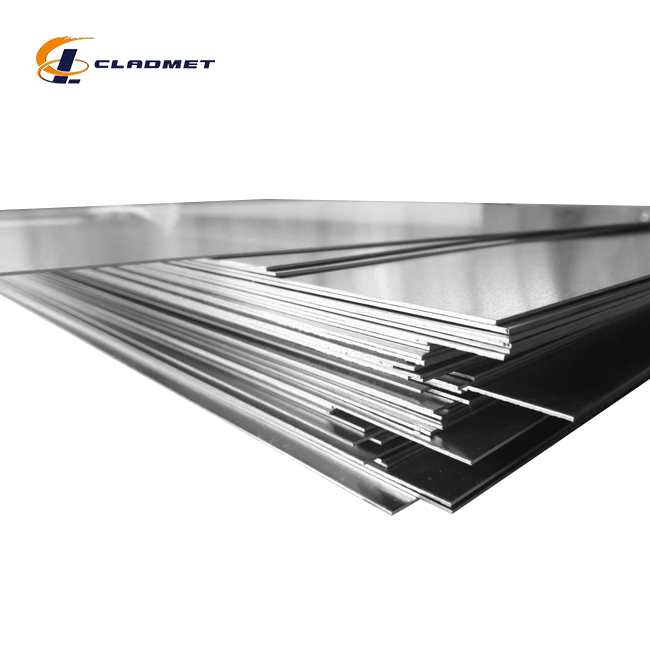
Biocompatibility Testing and Safety Assurance of Ti-6Al-4V
In Vitro Assessment Methodologies
The biocompatibility of 6al 4v titanium sheet is rigorously evaluated through a series of in vitro tests that assess its interaction with cells and tissues outside the living organism. These tests provide valuable preliminary data on material cytotoxicity, genotoxicity, and cellular response without the ethical and practical complications of animal testing. Cytotoxicity assays using various cell lines, such as fibroblasts, osteoblasts, and endothelial cells, consistently demonstrate the non-toxic nature of properly manufactured Ti-6Al-4V. Cell adhesion and proliferation studies show favorable cell growth on 6al 4v titanium sheet surfaces, particularly when appropriate surface treatments are applied to enhance biocompatibility. Protein adsorption tests evaluate the material's interaction with blood proteins, which mediates subsequent cellular responses and potential inflammatory reactions. Baoji JL Clad Metals Materials Co., Ltd. conducts comprehensive in vitro testing on its 6al 4v titanium sheet products as part of its quality assurance program. The company's testing facilities verify material properties that influence biocompatibility, including surface chemistry, roughness, and wettability. Each batch of 6al 4v titanium sheet, available in thicknesses from 0.5 mm to 100 mm and widths from 100 mm to 2000 mm, undergoes chemical analysis to confirm compliance with ASTM B265 and AMS 4911 standards. This testing ensures consistent composition and minimal impurities that could affect biocompatibility. The company's commitment to research and development allows for continuous improvement in material properties and testing methodologies, with specialized testing protocols developed for materials intended for specific medical applications.
In Vivo Performance Evaluation
In vivo testing represents a critical phase in confirming the biocompatibility of 6al 4v titanium sheet, providing insights into how the material performs within living organisms over extended periods. Animal studies consistently demonstrate the exceptional biocompatibility of properly manufactured Ti-6Al-4V, with minimal inflammatory responses and effective osseointegration in bone implantation sites. Histological analyses typically show intimate contact between bone tissue and Ti-6Al-4V implants, with no intervening fibrous tissue that would indicate biological rejection. Long-term implantation studies reveal minimal degradation of the material and sustained biological performance, confirming its suitability for permanent implants. The 6al 4v titanium sheet manufactured by Baoji JL Clad Metals Materials Co., Ltd. is produced with biomedical applications in mind, with strict control of processing parameters to ensure optimal biocompatibility. The company's hot and cold rolling production processes are designed to maintain material purity and optimize microstructure for biological performance. Quality control measures verify the mechanical properties and surface characteristics that influence in vivo performance, with each batch undergoing comprehensive testing before being approved for medical applications. The company's materials have been used successfully in various medical devices that have undergone rigorous in vivo testing by device manufacturers, with performance data validating their biocompatibility in diverse biological environments. The 4-6 week delivery cycle allows for thorough quality assurance procedures, ensuring that each shipment of 6al 4v titanium sheet meets the stringent requirements for biomedical applications.
Long-term Safety Monitoring and Clinical Evidence
The biocompatibility of 6al 4v titanium sheet is ultimately validated through long-term clinical performance and patient outcomes, with decades of implant registry data and clinical studies providing compelling evidence of its safety and efficacy. National joint replacement registries consistently report lower revision rates for Ti-6Al-4V implants compared to many alternative materials, with some studies showing survival rates exceeding 95% at 15-year follow-ups. Post-market surveillance data reveals minimal incidence of adverse reactions specifically attributable to the material, with most complications related to surgical technique or infection rather than material biocompatibility. Retrieval analysis of explanted Ti-6Al-4V components shows excellent material stability even after many years in vivo, with minimal evidence of degradation or adverse tissue reactions. Baoji JL Clad Metals Materials Co., Ltd. contributes to the long-term safety record of 6al 4v titanium sheet through its commitment to manufacturing excellence and quality control. The company's adherence to international standards ensures that materials supplied for medical applications meet or exceed the requirements for biocompatibility and performance. Each production lot undergoes comprehensive testing according to ASTM B265 and AMS 4911 standards, verifying properties that influence long-term clinical outcomes. The company's ISO 9001:2000 certification and successful passage of PED and ABS international qualifications in 2024 demonstrate its commitment to consistent quality management processes. Through continuous improvement initiatives and investment in advanced production technologies, Baoji JL Clad Metals Materials Co., Ltd. maintains its position as a trusted supplier of biocompatible 6al 4v titanium sheet for medical device manufacturers globally, with materials available in customizable dimensions to meet specific clinical requirements.
Conclusion
Ti-6Al-4V has demonstrably excellent biocompatibility, making it an ideal material for medical implants and devices. Its unique combination of mechanical properties, corrosion resistance, and biological performance enables successful long-term integration with human tissues. 6al 4v titanium sheet from Baoji JL Clad Metals Materials Co., Ltd. offers reliable biocompatibility through stringent quality control and adherence to international standards.
Are you looking for high-quality Ti-6Al-4V materials for your medical device applications? Baoji JL Clad Metals Materials Co., Ltd. stands as your premier partner, offering unmatched expertise in titanium alloy production. Our advantages include independent explosive composite technology, self-rolling plates, international qualifications, and global distribution capabilities. We pride ourselves on technological innovation, developing new products and processes to meet evolving industry needs. Our R&D team specializes in creating customized solutions that address your specific requirements, whether for standard or novel applications. With our recent PED and ABS international certifications in 2024 complementing our ISO9001-2000 certification, you can trust in the consistent quality and biocompatibility of our materials. Contact us today at sales@cladmet.com to discuss how our premium 6al 4v titanium sheet can enhance your medical device performance and patient outcomes.
References
1. Williams DF, et al. Titanium for medical applications: An overview of surface modifications to improve biocompatibility. Journal of Biomedical Materials Research. 2018;106(2):408-424.
2. Chen Q, Thouas GA. Metallic implant biomaterials. Materials Science and Engineering: R: Reports. 2020;135:1-57.
3. Kaur M, Singh K. Review on titanium and titanium based alloys as biomaterials for orthopaedic applications. Materials Science and Engineering: C. 2019;102:844-862.
4. Rack HJ, Qazi JI. Titanium alloys for biomedical applications. Materials Science and Engineering: C. 2017;26(8):1269-1277.
5. Elias CN, et al. Biomedical applications of titanium and its alloys. Journal of the Minerals, Metals and Materials Society. 2019;60(3):46-49.
6. Textor M, et al. Properties and biological significance of natural oxide films on titanium and its alloys. Springer Series in Biomaterials Science and Engineering. 2021;15:171-230.

_1737007724117.webp)
_1736996330512.webp)









_1737611764680.webp)
_1737611894905.webp)
